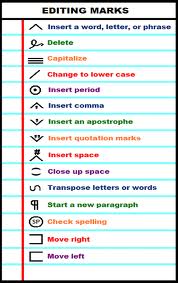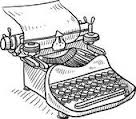Cecil Murphy stood up for his address to the American Christian Writer’s conference. “I’m a writer!” he exclaimed with a wide grin. “O.K. It’s your turn. You have to believe it. Say it loudly, with confidence, all together now.”
Voices became one, in loud unison, a believing audience declared, “I’m a writer!” But my own lips refused to move, my vocal chords quivered. I sat alone in the crowd and wondered, “Will I ever be able to join the chorus?”
I’ve always been in love with the written word. A faithful Carolyn Keene fan, I followed each Nancy Drew escapade. It was thrills galore to find Nancy Drew mysteries I hadn’t yet read for ten cents in the Salvation Army thrift shop.
In school I wrote passable book reports and term papers. This meant, of course, I got good grades. But today, the only evidence I have of any early writing is a poem I wrote in seventh grade. It marches in dependable but not very interesting rhythm, twenty four lines composed late the night Kennedy was shot. My teacher read it to the class the next day, and I felt honored. I never wrote poetry after that.
Raised on books as a child, it was a shock to marry someone who doesn’t like bookcases. I’ve had to find a variety of ways to space books throughout the house, pleasing both Vic and me. On our coffee table sets a special book my Mother kept in her own living room, Leaves of Gold, a comforting collection of poems, sayings, and observations by wise people, possibly the forerunner of today’s plethora of inspirational collections. It’s the only book I brought from Mother’s wall-length bookcases after she died.
Last week, I discovered why I claimed Leaves of Gold alone out of the hundreds of other books. Cleaning a hidden bookshelf in my own office closet, I pulled out an old forgotten notebook, brightly hand-painted in shiny turquoise and covered with red acrylic flowers. Back in high school I had designed this my personal Thought Book to hold clippings of wisdom, words to songs, poems, and cartoons, all special to me back then for one reason or another. I carried my Thought Book into the living room and set it on the coffee table next to Mother’s Leaves of Gold.
It’s not surprising, then, that I became an English teacher. I wanted to live in the world of words. From my first day as a teacher, I insisted all my students keep journals, a new educational technique just in vogue. It would be good for them. It also gave me a method of trying to relate to and understand them. For ‘their own good,’ I kept my own journal in class right along with the students, setting an example, practicing what I preached. Some students enjoyed writing, but most of them dutifully counted up to the required fiftieth word, slammed their journal closed, and waited for the five-minute timer to ring. What was wrong with them? Five minutes was barely enough time to get started.
Students struggled to know what to write about, and I struggled to make it easy for them. How could I explain how easy it was to find something to write about? It wasn’t really writing. It was thinking. For me, it was time to myself. Peace. Quiet. A connection to my own thoughts away from the intrusion of others. If only I could help students discover that special peacefulness.
After three years at a junior high school, I realized I wasn’t as successful at teaching as I had hoped. So, I became a real estate sales agent. However, unhappy in a job where words only appeared on purchase contracts and loan applications, I took up photography. Reality struck with lightning speed. Unless I could get hired by National Geographic really fast, I would miss my next house payment.
Good luck gave me the perfect reason to quit my dead-end job at a photography lab; I was pregnant. As I waited to become a mother, I enrolled at the university. My entire life had focused on words; this seemed to be a good time for a change. One semester later, exchanging words for numbers, I left the university prepared to be an accountant.
After the birth of daughter Jamie, I opened a small bookkeeping business at home. I spent days recording numbers, counting and calculating, looking for missing pennies and printing off pages of reports to show why the hair stylist made a profit and why the construction contractor would soon be bankrupt. Accounting was fun. I met interesting people and earned enough money to pay bills and buy my first computer. There was security in working with numbers. Numbers lived in a world of structure. They ordered themselves. I was just their supervisor. Numbers didn’t talk back.
But on light days, when work was slow, I would change the computer from accounting to word processing. I worked with numbers, but I played with words.
Being Mother and accountant suited our family life just fine. I could be my own boss, stay home if the kids needed me, and earn a decent living. Yet, eventually, tired of the isolation of working alone and bored with numbers that looked the same from day to day, the world of teaching beckoned me once again. Numbers were fine, but words were better.
It was exciting to be back in the classroom. Words expanded the brain, brought an explosion of thoughts, and created stimulating conversations and dialogue. I assigned students journals, of course. For eight years I responded to students in their journals, read shelves of teen literature, listened to student book conferences, and struggled again to be a good teacher. Slowly, though, I came to accept a dawning truth.
As a teacher, English came naturally. It was the kids who challenged me, not because they were bad, but because their needs never seemed to coincide with my desires. I had managed to become a competent teacher who enjoyed kids, but thankfully for all concerned, life’s difficulties led me away from the classroom for the final time. I brought memories, friendships, and books home with me. I brought home my journal, too.
Without a paycheck today, I have no official identity. This can be disconcerting for someone who’s had a new “career” every five years. I’m still wife and mother. I’m family photographer and accountant, too. Gardener, gopher, grocery shopper, seamstress, church choir member, cook, laundress, all are duties I rush through in hopes of having an hour or two at the typewriter in my journal.
Fingers flying about on computer keys, an English teacher gone mad, I ignore form for substance, throwing periods and commas to the wind. Capital letters are formed by excitement, not by rules. I write words, phrases, stories, anything that feels good, a jumble of Jane on paper.
Who am I? Are you asking me, Cecil Murphy? Do I have to figure it out? But a writer, no, not that. Not I.
********************************************
A WRITER’S LIFE
TABLE OF CONTENTS
*********************************************
 is to see this string of diamonds disappear in a flash, the function of hitting the delete key by mistake.
is to see this string of diamonds disappear in a flash, the function of hitting the delete key by mistake.
 Maybe one day, by the grace of God, I’ll accept His thoughts as all sufficient. And maybe…then…I’ll pay closer attention to what He’s trying to tell me and give up my own thoughts to become a single act of mercy and grace through which God can speak for Himself.
Maybe one day, by the grace of God, I’ll accept His thoughts as all sufficient. And maybe…then…I’ll pay closer attention to what He’s trying to tell me and give up my own thoughts to become a single act of mercy and grace through which God can speak for Himself.

